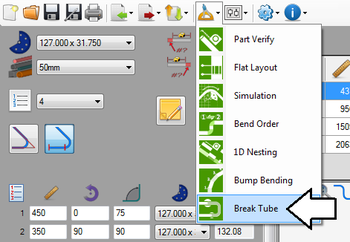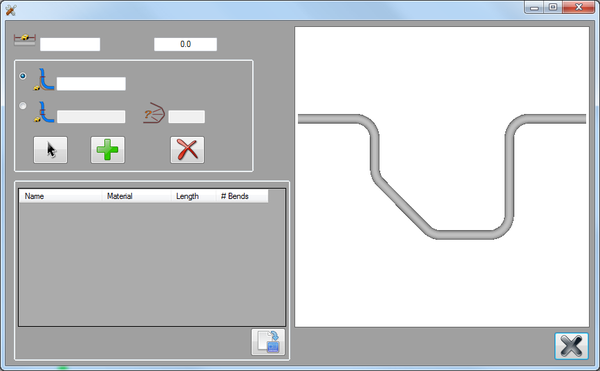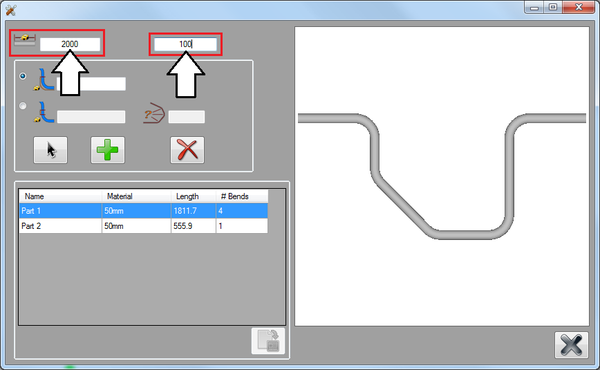Difference between revisions of "Break Tube Tutorial"
(Created page with "==Introduction== This tutorial will step through the process of separating a part into different sections using the Break Tube plug-in. This plug-in is used to break par...") |
(No difference)
|
Revision as of 13:57, 29 July 2013
Introduction
This tutorial will step through the process of separating a part into different sections using the Break Tube plug-in.
This plug-in is used to break parts into different sections when the total length of the part design exceeds the length of the material available. Breakpoints are placed on the part where each section will be broken off. Each section of the part will be shown in a chart and each can be sent to a part designer.
Tutorial
Note
Before starting the tutorial, a part must be created. This tutorial will be using the part that was created in the Linear 2D Designer Tutorial. Please complete the Linear 2D Designer tutorial before proceeding.
Step 1
Once the part is complete, go up to the main menu bar, click the tools menu, and select the break tube option.
Step 2
The break tube plug-in window will be opened.
On the right, there will be a 3D model of the part design. The full tube length and the minimum distance from bends will be supplied in the fields on the upper left. Below these fields there will be the tools used to place custom breakpoints. On the very bottom on the left, the part section chart will be generated.
Step 3
First, the length of the longest available tube will be supplied. Enter 2000 into the length field in the upper left corner.
Next, the minimum distance a breakpoint can be placed from a bend will be given. Enter 100 into the bend distance field' (To the right of the length field).
Step 4
Once the tube length and bend distance limit are supplied, the default breakpoint will be placed on the part. In the chart below, each section will be listed (Part 1 and Part 2).
Click on each section in the chart to see a preview of the section. When a part section is selected in the chart, the corresponding section on the part model will be highlighted in red. See image below.
Step 5
Next, custom breakpoint locations will be placed on the part.



